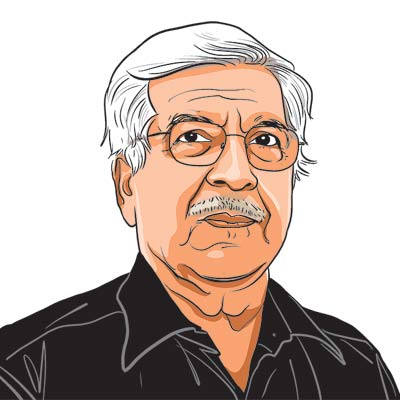Opinion Canes gain
Are we finally looking at decontrolling sugar?
The recent announcement from Pune that sugar might be decontrolled was interesting. That it was made by Sharad Pawar himself was encouraging. Sugarcane has been the pampered child of Indian agricultural policy,protected by tariffs,quantitative restrictions on international trade,large advances from the banking sector and restrictions on domestic movements and stocks. Are we to expect light at the end of the tunnel?
The last cane season saw a change in the right direction when we moved from the statutory minimum price (SMP) to a fair and minimum price (FMP),with an assertion that it was to provide a reasonable margin to sugarcane farmers on account of risk and profit,and was to be uniformly applicable across states. That blessed relic of the past,the Sugarcane Control Order,1966,was amended for this and the FRP was fixed at Rs 139 a quintal for average recovery. But a wag told me that it was wolf in sheeps clothing. Many years ago,I had to tell a minister who was giving a rather vapid lecture on liberalisation,that in a sectoral economy where all prices and quantities were controlled,relaxing one control could make matters worse and that there was a theory of second-bests which proved it. He was not contrite but events were bad for him for he wasnt charged for violating the theory of second bests but for amending one rule to favour some businesses.
In a written statement on March 2011,the government took credit for reducing sugar prices by changing import orders,imposing stock holdings,controlling turnover limits and suspending futures markets. For good measure,the authorities,not to be accused of being free-marketwallahs,also brought khandsari sugar into trading and stocking limits. Sharad Pawar is an old hand at all this and what he does not know about sugar is not worth bothering about and so the hope is that after he made that statement in Pune,he will abolish all this,and that is what he means by decontrol. It is also hoped that international trade will be allowed both in raw and refined sugar without hindrance.
Now that the government has made an announcement,it is expected that all these nefarious restricting orders,many which are of World War II vintage and the latest ones dating to the droughts of 1966,will be sent to the waste basket. Then the fun will begin.
In fact,I had written a report on sugarcane and sugar in the early 1980s,wistfully saying that the only reason public intervention was needed in sugar prices was because it was an 18-month crop and there was a cobweb as the farmer chased last years prices,and when demand zigged,he zagged. I thought a well-modulated buffer policy,including gur and khandsari,was needed; and even that could be avoided if we have export,import and futures. Of course,they never read all that. Still,a buffer will be needed if trade is not able to take the slack on account of the cobweb.
Coalition governments will never take the pressure of wildly fluctuating prices,and if the farmer goes by last years prices and this years crop,the cycle will be wild if tariffs,trade and futures dont take the slack. When that happens,women and men of good intentions and the media and now the courts will pillory the reformers. So take care is all I say. Meanwhile,go ahead and decontrol. But please dont play around with words,for you will be found out.
Once the decontrol takes place we can get serious. For out there,not hindered by stock,import,export,turnover and zonal restrictions,is a world of sugar complexes coming up in Brazil,Mauritius and elsewhere. But let us take it one step at a time.
I should also not be criticised for wishing that for the really hungry some sugar should be given through the UID,for if Sonia Gandhi pushes through her food security and not grain security idea,that amount of sugar can be bought in the open market of an efficient industry.
The writer,a former Union minister,is chairman,Institute of Rural Management,Anand,express@expressindia.com



